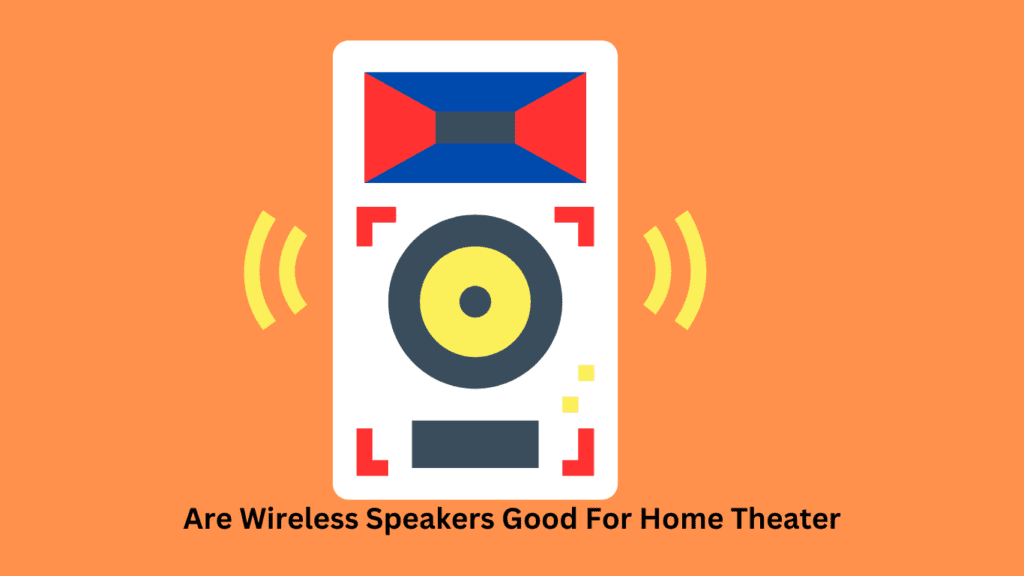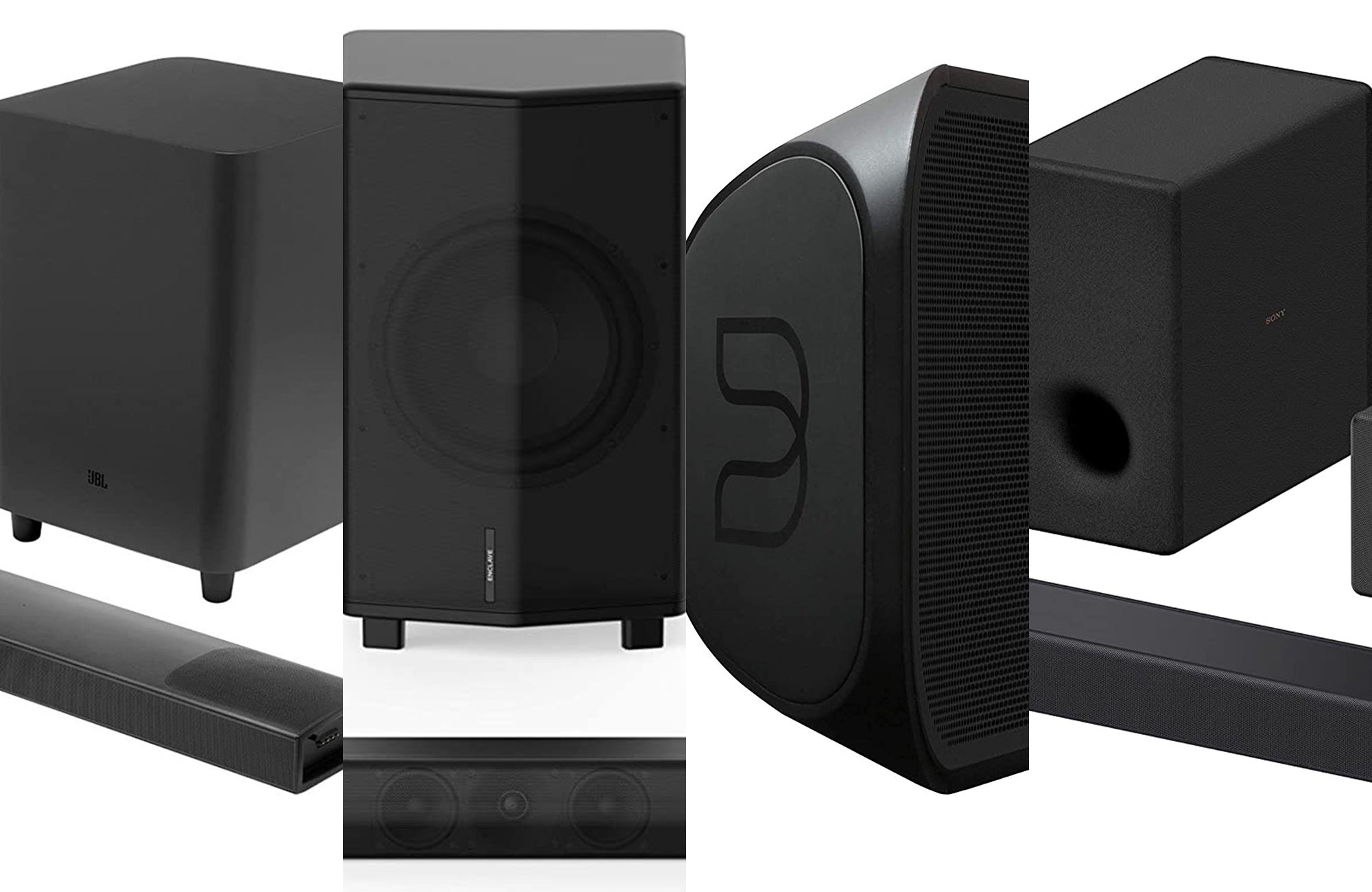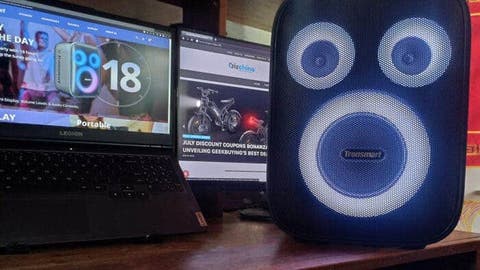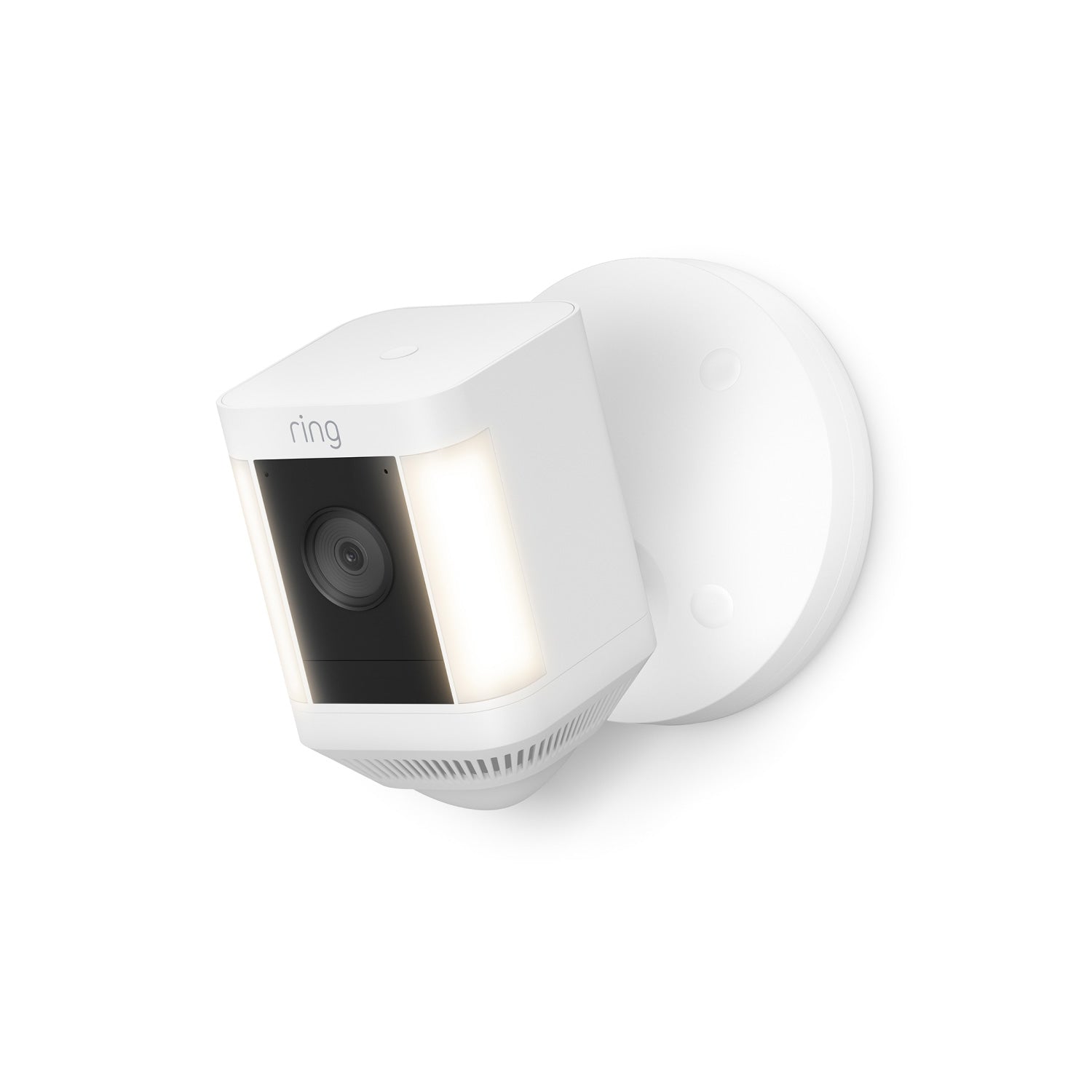Are Wireless Speakers Good For Home Theater
Are wireless speakers good for home theater? Let’s find out! If you’re looking to take your movie nights or gaming sessions to the next level, wireless speakers might be just what you need. These nifty devices offer convenience and flexibility, allowing you to place them anywhere in the room without dealing with messy cables. But are they worth the hype? Read on to discover the benefits and considerations of using wireless speakers for your home theater setup.
First and foremost, wireless speakers provide a clutter-free experience, giving your home theater a clean and sleek look. Say goodbye to the hassle of untangling wires and trying to hide them from sight. With wireless speakers, you can easily place them at optimal positions to achieve immersive surround sound without the limitations of cables. It’s like having a personal cinema without the messy cords!
Another advantage of wireless speakers is their versatility. Whether you’re watching movies, playing video games, or listening to music, these speakers can deliver an exceptional audio experience. Plus, many wireless speaker systems offer easy connectivity with various devices, such as smartphones, tablets, and smart TVs. You can effortlessly stream your favorite content and enjoy high-quality sound throughout your home theater.

Setup Wireless Speakers for your Home Theater
However, it’s important to keep in mind that wireless speakers may have certain limitations depending on your setup. Factors like signal quality, latency, and compatibility can impact the overall performance. To ensure the best experience, make sure to choose reliable wireless speakers from reputable brands and carefully follow the setup instructions. Additionally, consider factors like battery life and range to meet your specific needs.
So, are wireless speakers good for home theater? The answer largely depends on your preferences and requirements. While they offer convenience, flexibility, and impressive audio quality, it’s essential to consider the potential limitations and choose the right wireless speaker system for your setup. Now, let’s dive deeper into the world of wireless speakers and explore the options available to enhance your home theater experience!
:max_bytes(150000):strip_icc()/wireless-speakers-and-home-theater-1846770-976e460c9c3248c7b0e9f0e6c489cfe0.png)
:max_bytes(150000):strip_icc()/wireless-speakers-and-home-theater-1846770-976e460c9c3248c7b0e9f0e6c489cfe0.png)
Are Wireless Speakers Good for Home Theater: Unleashing the Power of Wireless Audio
Wireless speakers have revolutionized the way we experience sound in our homes. Gone are the days of tangled wires and limited placement options. With wireless speakers, you can now enjoy immersive audio without the hassle of complicated setups. In this article, we will explore the benefits, drawbacks, and tips for using wireless speakers in a home theater setup. So, let’s dive in and discover the potential of wireless audio!
Benefits of Wireless Speakers for Home Theater
Wireless speakers offer numerous advantages when it comes to setting up a home theater. Firstly, the absence of cords means easy installation and flexibility in speaker placement. You can position the speakers wherever you want, without worrying about concealing wires or tripping hazards. This gives you the freedom to customize your theater’s audio setup according to your room’s acoustics and design.
Secondly, wireless speakers provide seamless integration with other devices. Most wireless speakers are equipped with Bluetooth or Wi-Fi capability, allowing you to connect them to your TV, smartphone, or other smart devices. This versatility enables you to stream music, podcasts, or movies directly from your preferred source, enhancing the convenience and enjoyment of your home theater experience.
Lastly, wireless speakers offer scalability. Unlike traditional wired setups, adding more speakers to your home theater system is a breeze. You can expand your audio setup by simply adding more wireless speakers and connecting them to your existing network. This scalability allows you to create a truly immersive surround sound experience without the need for complicated wiring or expensive professional installations.
Drawbacks of Wireless Speakers for Home Theater
While wireless speakers have many benefits, it is important to consider their drawbacks as well. One of the main concerns is latency or audio delay. Wireless audio signals need to be transmitted and decoded, which can introduce a slight delay between the audio and video. This delay may not be noticeable for casual music listening, but for a home theater setup, it can be problematic, especially when watching action-packed movies where audio synchronization is crucial. However, with advancements in wireless technology, many high-quality wireless speakers now offer minimal latency, making them suitable for home theater use.
Another drawback is the potential for signal interference. Wireless speakers operate on radio frequencies, and in densely populated areas or environments with other nearby electronic devices, signal interference can occur. This interference can cause audio quality issues, such as distorted sound or dropped connections. However, with proper placement and selecting speakers with robust wireless technology, you can minimize the risk of signal interference and ensure a stable audio experience.
Tips for Using Wireless Speakers in Your Home Theater
To make the most out of your wireless speakers in a home theater setup, here are some tips to consider:
1. Invest in high-quality wireless speakers: Look for speakers that offer advanced wireless technologies, such as Wi-Fi 6 or Bluetooth 5.0, for optimal performance and minimal latency.
2. Consider multi-room audio capabilities: If you have multiple rooms or zones in your home, choosing wireless speakers that support multi-room audio can allow you to stream synchronized audio throughout your entire living space.
3. Optimize your wireless network: Ensure a strong and stable Wi-Fi connection by placing your router in a central location and minimizing physical obstructions between the router and your speakers.
4. Experiment with speaker placement: Since wireless speakers offer the freedom to place them anywhere, experiment with different positions to find the optimal soundstage and immersive experience. Consider using speaker stands or wall mounts for better placement options.
5. Calibration and audio tuning: Take advantage of any calibration features offered by your wireless speaker system. This can help optimize the audio output based on your room’s acoustics and speaker placement.
In conclusion, wireless speakers have proven to be a game-changer for home theater enthusiasts. With their flexibility, convenience, and expandability, they offer a compelling alternative to traditional wired setups. While there may be some challenges to overcome, advancements in wireless technology have significantly improved the performance of these speakers. By following the tips mentioned above and choosing high-quality wireless speakers, you can elevate your home theater experience to new heights, all without the hassle of wires. So, go ahead and unleash the power of wireless audio in your home theater setup!
Can you use wireless speakers for surround sound?
Using wireless speakers for surround sound in your home theater setup can offer convenience and flexibility while maintaining audio quality. Here’s a detailed exploration of the topic:
Wireless Speaker Technology:
Wireless speakers have advanced significantly, allowing them to be integrated into surround sound systems. These speakers connect to the audio source, such as a receiver or soundbar, without the need for physical cables.
Convenience and Placement:
Wireless speakers provide the advantage of easy placement. You can position them around the room without worrying about cable management. This flexibility is particularly valuable in optimizing speaker placement for immersive surround sound.
Compatibility:
Most modern wireless speakers are designed to work seamlessly with home theater systems. They support various connectivity options, such as Bluetooth, Wi-Fi, and proprietary wireless technologies specific to certain brands.
Multi-room Audio:
Some wireless speaker systems support multi-room audio, allowing you to create a distributed audio setup throughout your home. This can enhance the overall entertainment experience by providing synchronized audio in different rooms.
Audio Quality:
Audio quality is a critical factor when considering wireless speakers for surround sound. While wireless technology has improved, there may still be some minor latency or signal interference issues. However, high-quality wireless speakers designed for home theater applications can deliver impressive sound.
Sound Synchronization:
For effective surround sound, precise synchronization between speakers is crucial. Many wireless speaker systems address this by using advanced synchronization technology to ensure that audio is properly aligned across all speakers.
Expandability:
Wireless speaker systems often allow for easy expansion. If you initially set up a 5.1 system, you can add more speakers to upgrade to 7.1 or even object-based audio formats like Dolby Atmos.
Set-Up and Configuration:
Setting up wireless surround sound speakers generally involves pairing them with the main audio source or hub. Some systems might require a dedicated wireless transmitter for optimal performance.
Budget Considerations:
Wireless speaker systems can vary in cost, from budget-friendly options to premium systems. Consider your budget and prioritize speaker quality and compatibility with your existing equipment.
Hybrid Setups:
Some home theater enthusiasts use a hybrid approach, combining wired and wireless speakers. Wired front speakers and subwoofers can anchor the soundstage, while wireless rear or surround speakers provide flexibility.
Brand and System Compatibility:
When opting for wireless speakers, ensure compatibility with your existing audio equipment. Some manufacturers offer wireless speaker systems that are tailored to their receivers or soundbars.
Wireless speakers can indeed be used effectively for surround sound in your home theater setup. As technology advances, wireless audio solutions have become more reliable and can provide a convenient way to achieve an immersive audio experience without the limitations of cables. When considering wireless speakers, prioritize audio quality, compatibility, and the overall enhancement they can bring to your entertainment space.
Key Takeaways: Are Wireless Speakers Good for Home Theater?
- 1. Wireless speakers can be a great addition to your home theater setup.
- 2. They offer convenience by eliminating the need for messy wires.
- 3. Wireless speakers can be placed anywhere in the room for optimal sound distribution.
- 4. They provide flexibility, allowing for easy repositioning or adding additional speakers.
- 5. The sound quality of wireless speakers has significantly improved over the years.
Frequently Asked Questions
Welcome to our FAQ section where we answer common questions about using wireless speakers for home theater setups. Read on to find out why wireless speakers can be a great addition to your home theater experience!
1. Can wireless speakers provide the same audio quality as wired speakers for home theaters?
Yes, wireless speakers can provide similar audio quality to wired speakers for home theaters. The advancements in wireless technology have improved the quality of audio transmission, ensuring a clear and immersive sound experience. However, it’s important to choose high-quality wireless speakers that are specifically designed for home theater use to ensure optimal performance.
Wireless speakers use technologies like Bluetooth or Wi-Fi to receive audio signals from the home theater system without the need for physical connections. While there may be some minor differences in audio quality compared to wired speakers, modern wireless speakers can deliver impressive sound reproduction that can rival their wired counterparts. So, if you choose the right wireless speakers, you can enjoy excellent audio quality for your home theater setup.
2. Are wireless speakers easy to set up for a home theater?
Yes, wireless speakers are generally easy to set up for a home theater. Unlike wired speakers that require running cables across the room, wireless speakers eliminate the hassle of wiring and provide a more flexible setup. Most wireless speakers can be connected to the home theater system using a simple pairing process via Bluetooth or Wi-Fi.
Additionally, many wireless speakers come with user-friendly installation guides or companion apps that guide you through the setup process. These guides make it easy for anyone, even without technical expertise, to set up wireless speakers and enjoy the benefits of a home theater system without the clutter of wires.
3. Do wireless speakers have any lag or delay in audio playback?
Some wireless speakers may have a slight lag or delay in audio playback, but it’s usually minimal and not noticeable for most users. The introduction of advanced wireless audio technologies, such as AptX Low Latency, has significantly reduced audio latency. AptX Low Latency reduces the delay to a level where it is virtually imperceptible.
However, it is important to note that the overall audio delay can also depend on the specific wireless transmission technology, the distance between the speakers and the audio source, and any potential interference. To ensure minimal lag or delay, it is recommended to choose wireless speakers that support low-latency technologies and position them within the recommended distance from the audio source.
4. Are wireless speakers compatible with different home theater systems?
Yes, wireless speakers are designed to be compatible with various home theater systems. They can be used with TVs, AV receivers, soundbars, or other devices that have wireless audio capabilities. Wireless speakers often support standard audio protocols like Bluetooth or Wi-Fi, which are widely compatible with many audio sources.
However, it’s essential to check the compatibility requirements of the wireless speakers and ensure they are compatible with your specific home theater system. This can usually be found in the product specifications or by consulting the manufacturer’s guidelines. By choosing compatible wireless speakers, you can seamlessly integrate them into your existing home theater setup and enhance your audio experience.
5. Can wireless speakers be used for surround sound in a home theater?
Absolutely! Wireless speakers can be used for surround sound in a home theater setup. Many wireless speaker systems offer multiple speakers that can be placed strategically around the room to create an immersive surround sound experience. These wireless surround sound speaker systems often come with a central hub or receiver that connects to the home theater system and wirelessly communicates with the individual surround speakers.
With wireless surround sound speakers, you can enjoy the full cinematic experience with audio coming from all directions. The convenience of wireless connectivity allows for easier placement of the surround speakers without the need for running long cables along the walls or under carpets. It’s a great way to enjoy the benefits of surround sound without the hassle of wired setups.


Summary
Thinking about getting wireless speakers for your home theater? Here’s what you need to know. Wireless speakers are convenient because you don’t have to deal with wires, but they may not provide the same sound quality as wired speakers. They can also suffer from interference and signal dropouts. However, if you prioritize convenience over the absolute best sound, wireless speakers can be a good option for your home theater setup. Just make sure to choose a reliable brand and set up your speakers properly for the best experience.
Remember, wireless speakers are best for smaller setups and may not deliver the same immersive experience as wired speakers. So, consider your needs and preferences before making a decision.




